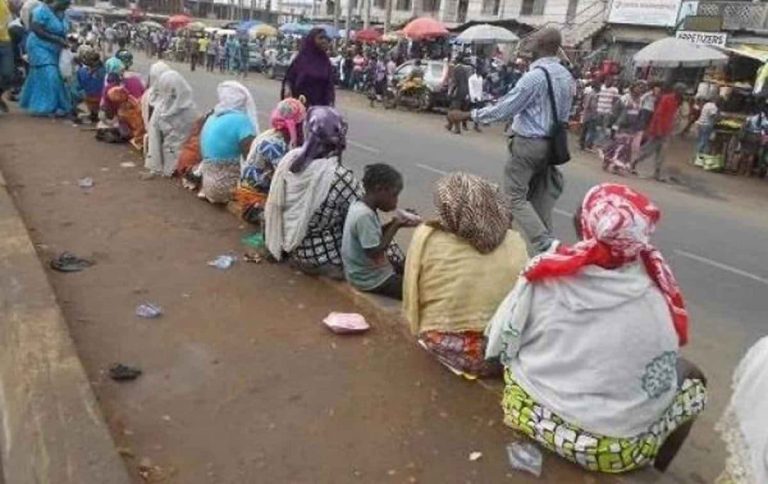Beggars in Lokoja, the Kogi State capital, have cried out over the declining rate of assistance from members of the public.
The beggars described their condition of living as “terrible” and unbearable.
Speaking with Arogidigba Global Journal at the popular old market in Lokoja, a beggar, who identified himself as Malam Abubakar Alli, expressed concern that he and his colleagues in the alms business no longer made enough money to feed.
Alli said: ”Few years back, I could boast of making N1,500 to N2,000 a day from begging, but for the past one year or so, I hardly make up to half of that amount.”
Another beggar, Mohammed Adamu, who noted that he lost his sight many years ago, said he has been finding it very difficult to cope with life due to diminishing earnings from begging.
“We cannot engage in meaningful physical work that can bring money to our pocket.
“As persons with disabilities, we depend solely on other members of the society.
“What they keep on telling us is that they are also feeling the negative impact of the bad economy. We are dying of hunger. Where do we go from here?” He asked.
The beggars called on the State and the Federal Government to find meaningful solutions to the current social and economic challenges facing the country.
Arogidigba Global Journal reports that the cost of living in Kogi State, especially Lokoja, is very high.
For instance, garri, a staple food hitherto regarded as the common man’s food, has gone beyond purchasing capacity, with a measure of it skyrocketing from N500 to N2,200.
A market survey by Arogidigba Global Journal in Lokoja revealed that prices of rice, beans, noodles, semovita, meat, tomato, pepper, onion, maize, corn, fruits, groundnut oil, red oil, among others have hit the roof top.
This is coupled with the high cost of transportation and other social services due to the removal of fuel subsidy by the President Bola Ahmed Tinubu-led Federal Government in 2023.
